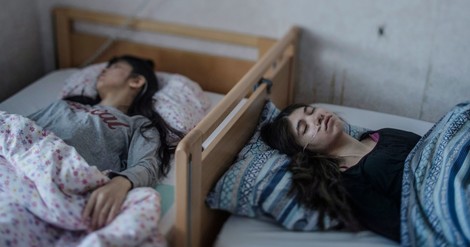Your podcast discovery platform
Curious minds select the most fascinating podcasts from around the world. Discover hand-piqd audio recommendations on your favorite topics.

piqer for: piqd Boom and bust Climate and Environment Global finds Globalization and politics Health and Sanity Technology and society Doing Good Deep Dives
Malia Politzer is the executive editor of piqd.com, and an award-winning long-form journalist based out of Spain. She specializes in reporting on migration, international development, human rights issues and investigative reporting.
Originally from California, she's lived in China, Spain, Mexico and India, and reported from various countries in Africa, Europe and the Middle East. Her primary beats relate to immigration, economics and international development. She has published articles in Huffington Post Highline, The Economist, The Wall Street Journal, Vogue India, Mint, Far Eastern Economic Review, Foreign Policy, Reason Magazine, and the Phoenix New Times. She is also a regular contributor to Devex.
Her Huffington Post Highline series, "The 21st Century Gold Rush" won awards from the National Association of Magazine Editors, Overseas Press Club, and American Society of Newspaper Editors. She's also won multiple awards for feature writing in India and the United States.
Her reporting has been supported by the Pulitzer Center on Crisis Reporting, The Institute For Current World Affairs, and the Global Migration Grant.
Degrees include a BA from Hampshire College and MS from Columbia University Graduate School of Journalism, where was a Stabile Fellow at the Center for Investigative Journalism.
"Sleeping Beauty Syndrome" — A Mental Illness That Only Affects Refugee Children In Sweden
Thousands of refugee children in Sweden are contracting a mysteries disease: Upon learning that their families are to be deported, they fall into a comatose state. They stop responding to stimuli, won't eat or drink, and can't be woken up — a condition that has been termed "apathy", or more colloquially, "sleeping beauty syndrome".
What is remarkable about this condition is that it only affects refugee children, and only those living in Sweden. Doctors began to notice it in the early 2000s among the children of asylum-seeking families facing deportation back to Russia and countries in Central and Eastern Europe. More recently, the condition has spread to refugee children from Syria and Afghanistan.
Although no one knows for sure why this particular population (and only this population) is prone, the author touches upon on some possible theories: One is that they are suffering from "culture-bound syndrome" — a psychological illness linked to a specific society. However, the fact that all the children are from different distinctive geographies means that the "culture-bound syndrome" explanation doesn't really fit.
The author suggests that Sweden's own culture may in fact be to blame: Swedish culture and society is built on minimizing risk and creating "security" for the population. Children are — by their nature — more adaptable to new cultures and more easily embrace Sweden's "security"-oriented cultural bias, and are similarly most affected when that security is taken away. As Aviv, the author, writes, "Psychological illnesses often adapt to a culture's preoccupation and fears". This article is a complex and moving testimony to this idea, set in the fascinating and heartbreaking context of refugee children in Sweden.

Are you real? Are you serious?